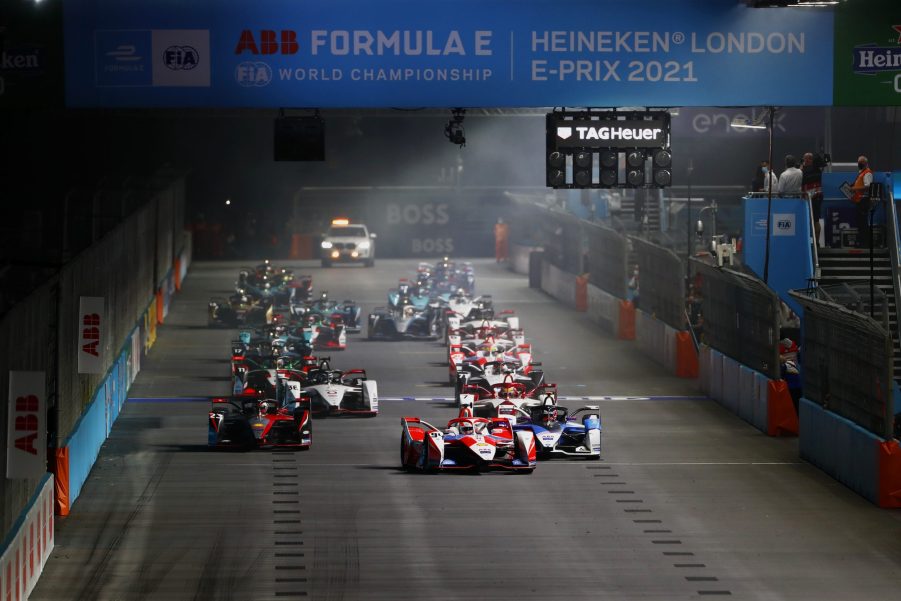
Formula E Farewells: Why Audi and BMW Are Leaving the Electric Racing Series
Formula E, the all-electric version of Formula 1, has been going strong since 2014. In an effort to clean up the earth, revolutionize electric car technology, and promote sustainable motorsports, Formula E hosts all sorts of automakers. But two of the biggest names in the series, Audi and BMW, just announced their departure. And while this news sounds grim, it’s actually not all bad. Neither team is suddenly dropping their hopes of a zero-emissions future, they’re just shifting strategies.

BMW withdraws from Formula E to focus on production electric vehicles
The BMW team was there when Formula E first began, and have provided safety cars for the events. Though they haven’t had much luck getting on the podium, with 5th place being the highest position they’ve finished a season in. And in the 2017/18 season, BMW finished last overall with just 24 points. But they’re not dropping out because they’re sore losers.
According to BMW, they’ve “exhausted the opportunities for this form of technology transfer in the competitive environment of Formula E.” They put in their all, and many millions of dollars, and did the best they could. Dropping out of the races now means they can spend their money to forward their global electric car efforts. Recently debuting the BMW i4 (not actually named after my least favorite interstate), their focuses are shifting towards the consumer and away from competitive motorsport.
However, the racing team BMW partnered with, Andretti Motors, will still take part in Formula E. They just won’t be backed by the German automaker. But speaking of German automakers, Audi is also stepping away from Formula E. However, unlike BMW, they’re not done with competitive motorsports just yet.
Audi withdraws from Formula E to participate in the Dakar Rally

Audi’s motorsport history is nothing short of gleaming. They revolutionized rallycross and dominated Group B, they moved on to the 24 hours of LeMans and won 13 of the 15 years they participated. And now they’re all lined up to electrify one of the most intense motorsport challenges: the Dakar Rally.
It’s a grueling, cross-country rally across the harshest areas of Saudi Arabia. Spanning over 9,000 miles, it’s desert and dunes for as far as the eye can see. Only the toughest cars survive. As of now, no electric car has attempted the course, but Audi is changing that with the 2022 RS Q e-Tron.
Well, we call it an electric car, but it’s not quite all-electric. In order to get the range needed, the RS Q is fitted with a “generator.” In quotations because it’s actually an engine from Audi’s latest entry in the Deutsche Tourenwagen Masters (German Touring Car Masters) series. Its sole purpose is to recharge the battery, it doesn’t drive the car or enhance performance, just extends the range. So technically it’s a hybrid, but its electric power is nothing to sneeze at.
Using not one, but two Formula E electric motors, the RS Q gets a combines 671 horsepower. And as the 50 kWh battery pack is recharged by the 2.0-liter inline-four, the Dakar Rally’s 500 mile-per-day stilts will prove the worthiness of Audi’s electric powertrain.
So yes, the two German rivals are going their own ways, committing to an electric future in vastly different ways. But Formula E is by no means over.
Formula E going forward

As Audi and BMW announced their departure, Jaguar announced their return. And ever since committing to Formula E, Jaguar plans to go all-electric as soon as 2025. Porsche, Mahindra, DS Automobiles, and Nissan are also returning for the next season, which will reveal the third generation of these electric racers. Poised to be faster and cleaner than ever before.
But it’s McLaren that may fill the hole BMW and Audi left behind. They already provide battery packs for the teams and would slide right into the series with no trouble at all. Whether that comes to fruition or not is still to be determined, but the electrification efforts of big-name automakers are still holding strong.


